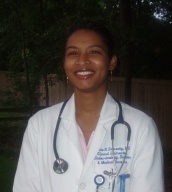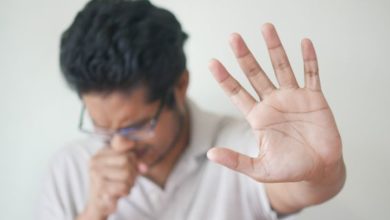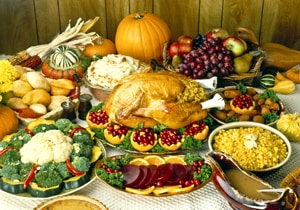Here’s to your Health – Diabetes Education Corner!

By: Dr. Anita Ramsetty
MIAMI – Diabetes is a serious problem among Caribbean Nationals, and getting worse. I am certain that everyone reading this article knows someone who has Diabetes, more commonly known as ‘sugar.” But before we really get into details, we need to address our first issue: Who am I to be giving out advice in the first place?
First, I am a Vincentian. I lived in St. Vincent until I graduated Girls High School, then moved to the US with my family to continue education.
As a Vincentian, I am very much aware of both the cultural aspects of food, as well as the food itself. I know only too well how hard it is to stop after just two (or 3 or 4) sugar apples, why warm coconut slice is the best thing at recess, and that black cake is the best part of Christmas dinner. Never mind passing the piece o’ pork, just pass the black cake please…
Second, I am a physician. I completed college, medical school, residency and specialty training in the US. I am now in a faculty position at a University hospital and have a private consultation practice. My specialty training is in a field called Endocrinology, Diabetes and Metabolism. So I see A LOT of people with Diabetes, and basically any hormone problem you can think of: thyroid problem, no period, gaining weight, losing weight, hormone cancers, no sex drive, men with breasts, women with too much hair etc. It’s never a boring day!
Third, I have personal experience with Diabetes. Several of my family members have Diabetes, some controlled and others not. My sweet Grandmother suffered a major stroke that was related to her Diabetes. I myself had borderline Diabetes when I was pregnant, so I know what it is like to check your blood sugars 8 times a day.
This column is not meant to be a lecture, but rather a source of information and hopefully something that makes you think, and talk to your family, your doctors, and your friends. My information and advice will be general and not specific to one person, so please do not use this to pick fights with your doctor! My hope is that you can use the information from this column to better educate yourself about this disease and perhaps become more proactive about your health. Diabetes is one of the few diseases over which you can have a great deal of control, and education is key. Hopefully I can help.
What is Diabetes really?
Diabetes basically means blood sugars that are higher than they should be. Groups of doctors and scientists looked at blood sugars from hundreds of thousands of people and then looked to see who had problems with eyes, nerves, heart etc. The folks with those health problems tended to have fasting morning blood sugars above 6.6mMol, or above 11.1 after eating. This is how they decided on the blood sugar number that means “diabetes.”
People who have Diabetes generally have high blood sugars even without eating anything. Infact, one of the ways doctors find people have Diabetes is by checking a blood sugar first thing in the morning. And you ask, why should my sugar be high if I didn’t eat anything? Must be the sweet potato from last night… Well not really.
Much of the food we eat is completely absorbed and gone from the system in a few hours. So unless you ate that sweet potato at 5 o’clock in the morning, that is not the main reason why your blood sugar is high at 8 AM. In order to keep our brain working while we sleep, our liver actually MAKES sugar for us. If you do not have Diabetes, this sugar is no problem. But if your body can’t handle it, then your sugar measurement is high when you wake up, even though you ate more than 10 hours ago.
Some folks have a blood sugar in the morning that is not too bad, but it shoots up after they eat. Do not be fooled, this is also Diabetes. And you say, well OFCOURSE my sugar went up because I had something sweet, that just makes sense. But does it? If that was true, every school child with a mouthful of sweeties would have Diabetes. If you feed a bag of sugar to someone without diabetes, their blood sugar will not go above 120 mg/dL or 6.6 mMol. So the usual argument(one I have heard) about the golden apple juice making your sugar high is not always the whole story. If golden apple juice gave you a sugar higher than 200 mg/dL or 11.1 mMol, then you have diabetes.
Some of you are already arguing with me about what I just wrote. Bring it on! I welcome feedback and questions: e-mail me at [email protected].

Medical Director, Endocrine Care Group





